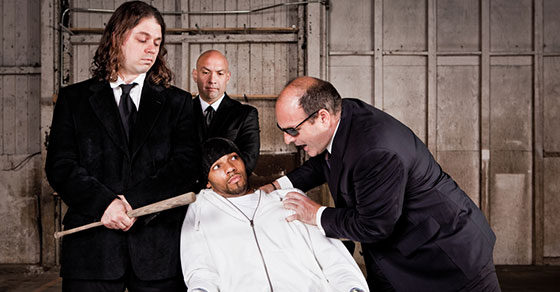The Abuse of Authority and the Frailty of Free Will: Compliance

The human mind can be manipulated. Free will can be overcome. In some extreme cases, people can be convinced to say or do things which they would never dream themselves capable of. This has daily implications for law enforcement and human rights.
The Toronto criminal defence lawyers at The Defence Group were recently invited to a screening of the critically acclaimed film Compliance, a tightly wound psychological thriller. In the film, a prank caller, posing as a police officer, telephones the manager (played by Ann Dowd) of a fast food restaurant during a busy Friday evening shift. Claiming that a theft had taken place at the restaurant, the caller instructs the manager to detain one of the employees, a 19 year-old female (played by Dreama Walker), in the back office, and search her belongings. Using a combination of intimidation, praise, and building on the feelings of trust and obedience that most citizens have towards the police, we watch in horror as the caller persuades the manager not only to strip search the employee, but to arrange for a series of men to supervise the girl while she is both naked and confined. Almost inevitably, the incident ends badly for all concerned.
What is at least as shocking as the incidents in the film is the fact that the plot is based on true events. Between 1994 and 2004, a series of 70 similar prank calls took place in the United States. While an arrest was eventually made, the suspect was never convicted.
How is it possible for people to fall for such a scam? It is easier than one might think. People are predisposed to listen to, and respect, authority figures, such as police. They want to cooperate, to be helpful. And they are easily intimidated. Time and again, in criminal law cases, we see situations where the police are able to persuade suspects to talk, to incriminate themselves, even to confess to crimes they never committed, because of the trust and authority invested in the police, and the circumstances of coercion and intimidation in which that authority is sometimes exercised. An experienced police detective will play on the vulnerabilities of a suspect or a witness, convince them that providing information is the only way out of trouble, or the only way to prove their good character. Sometimes cooperating seems to be the quickest way out, the path of least resistance. In the face of such pressure, telling someone that they have the right to remain silent, or the opportunity to call a lawyer, might seem abstract and vague compared to the prospect of getting out of jail quickly.
The Charter of Rights is meant to protect against such abuse by the police. However, unless you have a the benefit of a criminal defence lawyer’s advice, or a vigorous criminal law defence, you might find yourself saying too much, or doing things you might otherwise never believe yourself capable of doing. In Compliance, it is the seemingly hapless janitor who finally has the integrity and independence to stand up the “police officer” on the telephone. An intense and well-made film like Compliance acts as a reminder to all of us that our rights and freedoms are precious, are vulnerable, and must be carefully protected.
Many thanks to Adrienne Browne, and the team at EOne Films for an entertaining and insightful evening.
The Toronto criminal lawyers of The Defence Group are available seven days a week to advise and defend you against police misconduct, the abuse of authority and the erosion of your rights by the government. For more information or to book a free consultation, click here or visit our website.

